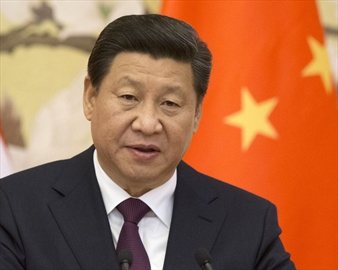Beijing is embarrassed about unruly Chinese tourists and plans to ‘publicly shame’ them
Hamilton Spectator
By Adam Taylor
On Friday, Chinese state media reported that Beijing was taking new measures to combat a growing problem: the embarrassing behavior of Chinese tourists when abroad.
After a spate of incidents involving Chinese nationals abroad, Li Jinzao, head of China's National Tourism Administration, was reported to have said that records would be kept of problem tourists, with tourists "ranked" on the severity of their misbehavior. These tourists would receive messages reminding them to behave when they landed at their destination. If they disobeyed, they would be punished.
Li also announced a new tactic to improve tourists' behavior: Public shaming. He encouraged Chinese tourists to take photos or video of bad behavior they spot and pass it on to authorities. The evidence would then be publicized.
Over the past few years, the behavior of some Chinese citizens when abroad has become a source of ire for the nation. Online, many stories of Chinese tourists showing a lack of civility or behaving selfishly have become viral sensations: There was the Chinese teenager who defaced a 3,500-year-old temple in Egypt, for example, and the group of Chinese tourists who washed their feet at the Louvre in Paris.
Just last month, a group of Chinese passengers threw hot water on a flight attendant on an AirAsia flight from Thailand, prompting international outrage. (The state newspaper China Daily said the tourists were "behaving like barbarians.") A few weeks later, Chinese passengers on a moving China Eastern flight opened the emergency doors after growing impatient about delays and a lack of ventilation.
For a rising superpower, such stories were apparently embarrassing, and the Chinese government has made a number of pleas to tourists to behave. In 2013, Chinese Vice Premier Wang Yang criticized the "uncivilized behavior" of his countrymen when traveling abroad. Later that year, China adopted its first "tourism law," which required tourists traveling abroad to respect local customs. China's state-run broadcaster, China Central Television, even aired a public service video that used "bad pandas" to show what to not do abroad.
The pleas reached the top levels of government. After reports that high-end resorts in the Maldives were removing kettles from their rooms in a bid to stop Chinese tourists from cooking instant noodles, President Xi Jinping called on his people to behave better when abroad. "Let me interrupt and say something here," Xi said during an official visit to the Maldives. "We should also educate our citizens to be civilized when traveling abroad. Don't litter water bottles; don't destroy their coral reef. Eat less instant noodles and more local seafood."
One interesting factor here is that much of the concern about Chinese tourists seems to come not from the foreign countries they apparently offend, but from China itself. Studies and polls have named Americans, Britons, French and even Canadians as the "world's worst tourists" in the past few years.
But if Chinese tourists are actually as embarrassing as the Chinese state thinks they are, it seems to be reflection of the changing nature of the country. In the past, few Chinese citizens were able to travel abroad. However, as the country has become both richer and more open, more and more Chinese citizens have taken up the new opportunities. Data from the World Bank shows that 83 million international outbound tourists departed from mainland China in 2012, more than any other nation. That number is only likely to grow — just 5 percent of Chinese citizens are currently thought to have passports.
The Chinese government's new plan seems to be to forcibly educate its citizens, perhaps unused to being tourists, on how to behave while abroad. And, intriguingly, with the new tactic of "public shaming," the government seems to be learning from various social media-driven scandals (and the "human flesh engines" following them) that have engulfed Chinese officials who conspicuously displayed wealth or otherwise behaved arrogantly in recent years.
Washington Post

No comments:
Post a Comment
Comments always welcome!